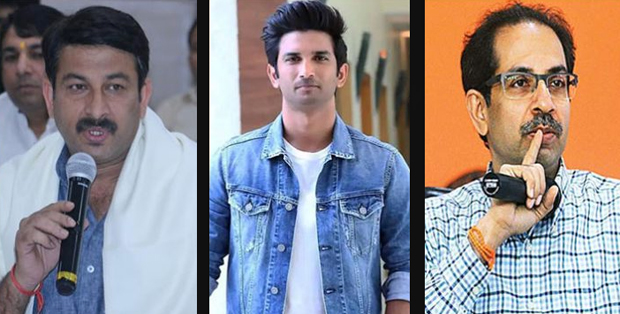A gang has been spreading rumours about me in the Hindi film industry that is preventing him from getting work, says Academy award-winning music director A R Rahman.
Collaborations between him and the Hindi film industry have reduced as a result, he adds
The maestro had composed music for Sushant Singh Rajput's Dil Bechara said that the reason he is not doing a lot of work is that a gang has been spreading rumours about him which resulted in him getting fewer projects.
Rahman's comments come amidst a raging insider versus outsider debate in Bollywood following actor Sushant Singh Rajput's untimely demise last month.
During an interview with Radio Mirchi, the Oscar-winning music director was asked the reason for doing less Hindi films.
Rahman said there has been "misunderstanding" between him and filmmakers as some people have been spreading "false rumours" about him in the industry.
"See, I don’t say no to good movies, but I think there is a gang, which, due to misunderstandings, is spreading some false rumours. So when Mukesh Chhabra came to me, I gave him four songs in two days. He said, 'Sir, how many people said don’t go, don’t go (to him). They told me stories after stories'," he said.
"I heard that, and I said, 'yeah okay, now I understand why I am doing less (work) and why the good movies are not coming to me.' I am doing dark movies, because there is a whole gang working against me, without them knowing that they are doing harm," the composer added.
Rahman has composed the music for Rajput's last movie "Dil Bechara", which premiered on Disney+ Hotstar on Friday. The film, directed by Mukesh Chhabra, also features Sanjana Sanghi and Saif Ali Khan.
The composer further said that he is aware of people's expectations from him but the "gang" is getting in his way.
"People are expecting me to do stuff, but there is another gang of people preventing that from happening. It is fine because I believe in destiny. I believe that everything comes from God.
"So, I am taking my own movies and doing my other stuff. But all of you are welcome to come to me. You make beautiful movies, and you are welcome to come to me," Rahman added.
Dubbed ‘Mozart of Madras’, A R Rahman has composed soundtracks for movies like Swades, Dil Se, Guru, Rockstar and more recently Sushant Singh Rajput’s Dil Bechara.
The composer won two Academy Awards in 2009 for his songs in the popular Hollywood movie, Slumdog Millionaire. The composer also received a Golden Globes Award for his work in this movie.
 As reported earlier, fire broke out on the sets of Kapil Sharma's highest rated show 'Comedy Nights with Kapil' today morning. Kapil shares how shocked he is over the mishap.
As reported earlier, fire broke out on the sets of Kapil Sharma's highest rated show 'Comedy Nights with Kapil' today morning. Kapil shares how shocked he is over the mishap.





Comments
Add new comment